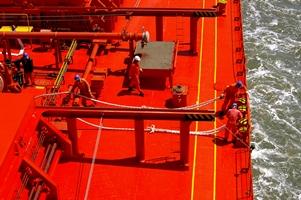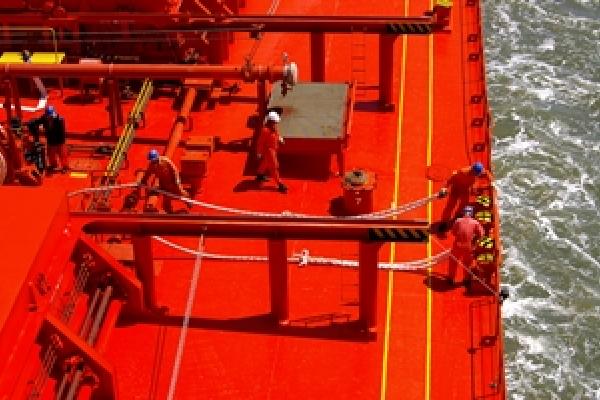
Steamship Mutual
Published: May 01, 2013

The MLC will come into force on 20 August 2013 after at least 30 countries representing nearly 60 per cent of the world’s shipping tonnage (surpassing the required 33 per cent) ratified the convention. The UK has yet to ratify though is expected to do so before August 2013.
It will replace a significant number of existing ILO maritime conventions and will set up a new international regime of global labour standards. For the first time, it will provide a system of certification and inspection to enforce those standards.
Seafarers and their rights
The main aims of the MLC are to ensure decent working conditions for seafarers as well as fair conditions of competition for shipowners.
The convention has an extended application and protection to all “seafarers”, defined as “any person who is employed, engaged or works in any capacity on board a ship that is covered by the Convention”. Ships will include all ships ordinarily engaged in commercial activities.
Generally speaking, the key rights for every seafarer will be:
- a safe and secure workplace that complies with safety standards
- fair terms of employment
- decent working and living conditions on board ship
- health protection, medical care, welfare measures and
- other forms of social protection
Certification and Enforcement
From August 2013 all vessels, whether their flag state has ratified the MLC or not, may be subject to an inspection by Port State Control in any country that has ratified the MLC.
Shipowners will be required to provide a Maritime Labour Certificate as well as a Declaration of Maritime Labour Compliance authorised by their flag state to Port State Control inspectors during their routine inspections.
In cases where a breach of the Convention has been identified or where a complaint is made by the seafarer, Port State Control will carry out detailed inspections. There is a potential for delay, fines and/or detention for non-compliance.
The legal effects of the new provisions are untested and while shipowners are ultimately responsible for compliance with the MLC, it does not appear to restrict shipowners potential recourse against charterers.
How to prepare
To ensure compliance with the standards from August 2013, it is suggested that shipowners review and revise relevant contractual agreements and policies, best practice guides, seafarers complaints procedures, employment contracts and crew management agreements.
Additional training of senior officers to ensure that the vessel is compliant with MLC should also be considered.
Financial security for repatriation of seafarers and death or long term disability of seafarers
The MLC requires that State Parties ensure that those employed by shipowners on vessels flying their flag are entitled to:
(a) repatriation, including repatriation in cases of shipowners insolvency (effectively abandonment) and for which financial security should be in place, and
(b) compensation in the event of death or long term disability due to an occupational injury, illness or hazard as set out in national law, the seafarer’s employment agreement or collective agreement and for which financial security must be in place.
In order to ensure compliance with these requirements, vessels flying the flag of State Parties will need to have evidence that financial security is in place.
Those employed by the ship are also entitled to unemployment compensation resulting from the ship’s loss or founding for each day the seafarer remains unemployed. The total compensation is limited to two months wages.
P&I cover
Claims for repatriation following illness or injury and claims under (b) above have generally been covered by standard P&I cover, except for repatriation in cases of insolvency. In order to ensure compliance with the financial security requirements of the Convention, the International Group (IG) has agreed that Clubs may extend the scope of standard P&I cover to include repatriation in cases of insolvency. The Club has amended Rule 25 ii c (ii) to reflect this.
The Club, together with the IG, is continuing to liaise with ratifying state parties to the Convention and a further update to Members will be provided closer to August 2013.
For more details on Evidence of Financial Security please refer to circular B.599 Entry into force of the Maritime Labour Convention, 2006 (MLC) issued by the Club in March 2013.
The full text of the Maritime Labour Convention 2006 can be seen on the ILO website.
Article by Ilka Beck and Alexandra Lamont


